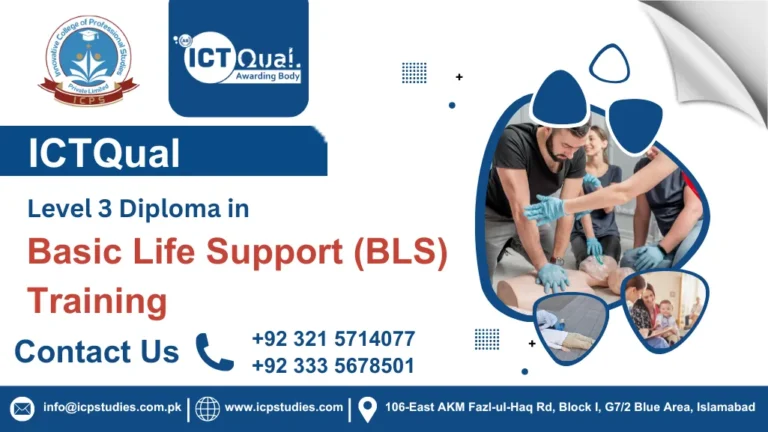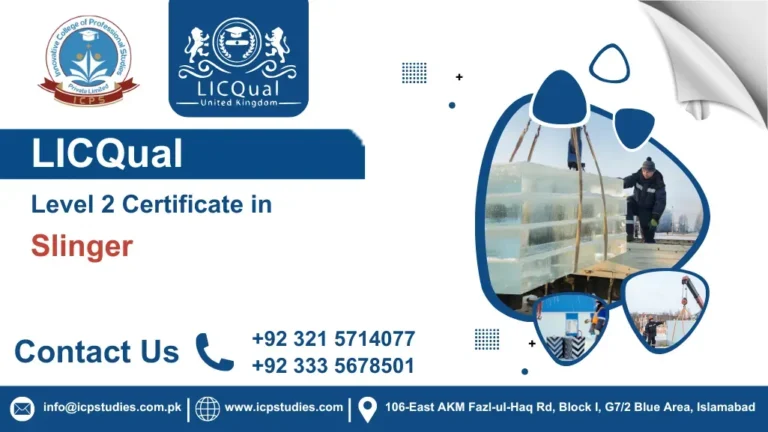Embark on a journey of mastery and adventure with the Level 3 Award in Rigging, a comprehensive program designed to elevate your expertise and open doors to an array of dynamic industries.
In this cutting-edge course, we delve into the heart of rigging, unraveling the complexities that make it an art form in various sectors. Imagine yourself as the maestro orchestrating the seamless movement of heavy loads, be it in the realm of entertainment, construction, or beyond. This award is your ticket to becoming the go-to expert in the field, equipped with the knowledge and hands-on experience to tackle rigging challenges with finesse.
The Level 3 Award in Rigging is not just a qualification; it’s a passport to a world where every lift is a puzzle waiting to be solved and every project is a canvas for your skills to shine. Whether you aspire to be a sought-after rigger in the bustling world of events and entertainment or play a pivotal role in constructing the monumental structures that shape our landscapes, this program caters to your ambitions.
Our engaging curriculum goes beyond textbooks, combining theoretical insights with practical applications. You’ll find yourself immersed in real-world scenarios, honing your abilities under the guidance of seasoned professionals who are passionate about passing on their wealth of experience. Safety is our top priority, and our instructors ensure that you not only understand the principles but also apply them in a manner that keeps you and your team secure.
Join us in this exciting expedition, where you’ll develop a skill set that goes beyond the ordinary. The Level 3 Award in Rigging is your gateway to a dynamic and rewarding career where every day brings new challenges and triumphs.
Don’t wait – enroll today and take the first step towards a brighter future in environmental management. Contact us today to learn more about our Level 6 Diploma in Environmental Management and how it can help you achieve your professional goals.
All About Level 3 Award in Rigger
Course Overview
The Level 3 Award in Rigger offers a comprehensive training program designed to enhance participants’ expertise in advanced rigging techniques, safety procedures, and industry standards. This course aims to provide a deep understanding of rigging principles, equipment operation, and practical experience in a controlled setting.
Course Objectives:
- Mastery of Advanced Rigging Techniques: Develop proficiency in executing complex rigging methodologies tailored for various applications, including handling heavy machinery, construction materials, and specialized equipment.
- Emphasis on Safety and Compliance: Understand and adhere to industry safety standards and regulations governing rigging operations. Prioritize risk assessment, hazard identification, and the implementation of safety measures to ensure a secure work environment.
- Hands-On Experience with Equipment: Gain practical skills through hands-on experience with a diverse range of rigging equipment, such as cranes, hoists, slings, and lifting devices. Learn proper inspection, maintenance, and utilization of rigging tools to enhance operational efficiency and safety.
- Proficiency in Load Calculations: Acquire the ability to calculate load weights, determine center of gravity, and assess other critical factors necessary for safe and efficient rigging operations.
- Effective Communication Skills: Develop clear and concise communication techniques essential for coordinating rigging activities with team members, crane operators, and other stakeholders. Emphasize the role of effective communication in accident prevention.
- Emergency Response Preparedness: Learn emergency response procedures and protocols specific to rigging incidents. Develop the capability to respond promptly and efficiently to unforeseen challenges encountered during rigging operations.
Learning Outcomes
- Understand Rigging Principles:
- Define key rigging terminology.
- Explain the principles of load distribution and balance.
- Describe the characteristics and limitations of different types of rigging equipment.
- Risk Assessment and Safety Procedures:
- Conduct a thorough risk assessment for rigging activities.
- Implement safety procedures to minimize hazards and prevent accidents.
- Identify and use personal protective equipment (PPE) correctly.
- Equipment Selection and Inspection:
- Select appropriate rigging equipment based on load requirements.
- Perform pre-use inspections of rigging equipment to ensure compliance with safety standards.
- Identify and address potential defects or issues with rigging gear.
- Load Handling Techniques:
- Demonstrate proper techniques for lifting, lowering, and positioning loads.
- Apply knowledge of center of gravity and weight distribution to ensure safe load handling.
- Use signaling and communication effectively during rigging operations.
- Knowledge of Regulations and Standards:
- Interpret and apply relevant regulations and industry standards for rigging activities.
- Stay updated on changes in regulations and standards affecting rigging practices.
- Emergency Response and Rescue Procedures:
- Outline emergency response procedures in the event of accidents or failures.
- Demonstrate proficiency in basic rescue techniques related to rigging operations.
- Identify and respond to potential emergencies during rigging activities.
- Communication Skills:
- Communicate effectively with team members during rigging tasks.
- Use appropriate communication methods for signaling and coordination.
- Collaborate with other professionals involved in rigging operations.
- Documentation and Record-Keeping:
- Complete necessary documentation related to rigging activities accurately.
- Maintain records of equipment inspections, risk assessments, and incident reports.
- Understand the importance of accurate record-keeping for compliance and accountability.
- Continuous Professional Development:
- Recognize the importance of ongoing learning and development in the field of rigging.
- Seek opportunities for additional training and certification to enhance skills.
- Stay informed about advancements in rigging technology and best practices.
Successful candidates will have a comprehensive understanding of rigging principles, safety protocols, and regulatory compliance, enabling them to contribute to a safe and efficient working environment in industries requiring rigging expertise.
To enroll in the Level 3 Award in Rigger, candidates should meet the following entry requirements:
- Educational Qualifications:
- A minimum of a Level 2 qualification in a relevant field such as construction, engineering, or health and safety is preferred.
- Alternatively, candidates should possess a high school diploma or equivalent.
- Age Requirement:
- Candidates must be at least 18 years old at the time of enrollment.
- Professional Experience:
- While prior experience in rigging or related areas (e.g., construction or lifting operations) is not mandatory, it is highly beneficial. Candidates with relevant work experience will find the course more accessible.
- Language Proficiency:
- Proficiency in English is required, as all course materials and assessments will be conducted in English. Non-native speakers may be required to provide evidence of their English language skills (e.g., IELTS or equivalent).
- Health and Safety Awareness:
- A basic understanding of health and safety practices in the workplace is advantageous.
- Physical Fitness:
- Candidates should be physically fit and capable of performing the manual tasks associated with rigging operations.
- Motivation and Commitment:
- A strong interest in rigging and lifting operations, along with a commitment to safety and professional development, is essential.
Meeting these entry requirements ensures that candidates are adequately prepared for the Level 3 Award in Rigger program. This qualification is an essential step for those looking to establish or advance their careers in rigging and lifting operations within various industries.
The Level 3 Award in Rigger is designed for a diverse range of individuals who are looking to advance their skills and knowledge in rigging and lifting operations. This course is ideal for:
- Aspiring Riggers:
- Individuals seeking to start a career in rigging, especially those who want to gain formal recognition of their skills.
- Construction Workers:
- Professionals already working in construction who want to enhance their understanding of rigging techniques and safety practices.
- Heavy Equipment Operators:
- Those operating cranes or other lifting equipment who need to improve their rigging skills to ensure safe operations.
- Site Supervisors and Managers:
- Professionals responsible for overseeing lifting operations and ensuring compliance with safety standards.
- Maintenance Personnel:
- Individuals involved in maintenance activities who require rigging skills for various lifting tasks.
- Safety Officers:
- Professionals focused on workplace safety who wish to deepen their understanding of rigging and its associated risks.
- Students and Recent Graduates:
- Individuals pursuing a career in construction or engineering who want a recognized qualification in rigging.
Conclusion
The Level 3 Award in Rigger is ideal for anyone committed to improving their skills in rigging and lifting operations. Whether you are new to the field or looking to enhance your existing expertise, this course provides essential training to help you excel in rigging roles across various industries.
Key Takeaways
Mandatory Units
Level 3 Award in Rigger: Mandatory Units
- Introduction to Rigging Techniques
- Understanding the fundamentals of rigging in various industries.
- Identifying different types of rigging equipment and their applications.
- Safety protocols and risk assessments in rigging operations.
- Rigging Equipment Operation and Maintenance
- Hands-on training in operating common rigging equipment.
- Routine maintenance procedures for rigging equipment.
- Troubleshooting and identifying potential issues.
- Load Calculations and Center of Gravity
- Principles of load calculations and center of gravity.
- Determining appropriate rigging configurations for different loads.
- Application of mathematical formulas in rigging planning.
- Communication and Team Coordination
- Effective communication in rigging operations.
- Team coordination and collaboration during lifting and moving operations.
- Emergency procedures and communication protocols.
- Legal and Regulatory Compliance in Rigging
- Understanding relevant national and international regulations.
- Compliance with health and safety standards.
- Documentation and reporting requirements in rigging activities.
- Advanced Rigging Techniques
- Specialized rigging techniques for complex scenarios.
- Rigging in confined spaces and challenging environments.
- Case studies and practical applications.
- Rigging Inspections and Audits
- Developing inspection checklists for rigging equipment.
- Conducting routine inspections and audits.
- Documenting and reporting inspection findings.
- Emergency Response and Rescue Procedures
- Planning and executing emergency response drills.
- Rescue procedures in the event of rigging accidents.
- First aid and basic life support in rigging emergencies.
FAQs Related to Level 3 Award in Rigger






